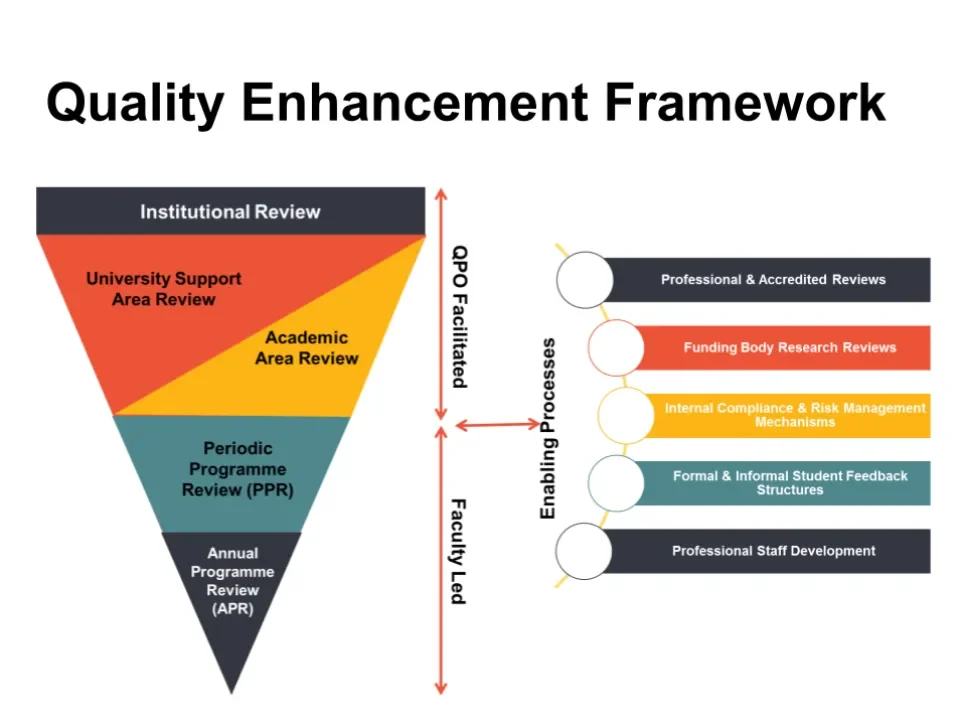
About The Review Process
DCU's Quality Enhancement Framework
Externally-led quality reviews of DCU's academic and professional support areas are a core aspect of a broader quality assurance and enhancement structure at DCU. Area reviews are conducted on a cyclical basis, typically once every seven years. For academic units, in particular, cyclical reviews are built upon regular reviews of academic programmes, including Annual and Periodic Programme Reviews. The quality enhancement framework describing how Annual and Periodic Programme Reviews align to Area level reviews is outlined in Figure shown below.

Benefits to the Quality Review Process
In addition to satisfying statutory requirements (Universities Act, 1997, QQI Act, 2012), the quality review process is valuable for a number of reasons:
It provides documented and detailed information about the Area under review and the collective perception of staff and students of the Area's role in the University.
It presents a succinct and comprehensive statement of the Area’s strategic objectives and for a Faculty, of its teaching, learning and research.
It provides a reflective and self-critical analysis of the activities of the Area.
It shows the quality systems and processes already in place in the Area and an assessment of their effectiveness.
It helps the Area to identify and analyse its strengths, weaknesses, opportunities and challenges and to suggest appropriate remedies where necessary.
It identifies weaknesses, if any, that are under the Area's control and which can be remedied by Area-based action.
It identifies shortfalls in resources and provides an externally validated case for increased resource allocation.
It provides a framework within which the Area can continue to enhance quality into the future.
Stages of the Review Process
The quality review process includes four key stages
1. A period of self-assessment, involving all staff within an Area under review, which aims to critically assess the activities of the Area. The outputs of this self-reflection are summarised in the development of a Self-Assessment Report (SAR), which forms the basis of the evaluation of the Peer Review Group.
2. A visit by an externally led Peer Review Group (PRG), to verify and evaluate the SAR, and meet with staff, students, and other stakeholders to discuss key issues identified. The visit is followed by the completion of a PRG Report, which summarises the Group’s findings and makes commendations and recommendations for future quality enhancement within the Area under review.
3. The development of an Area-led Quality Enhancement Plan (QuEP) in light of the PRG recommendations. This involves both an Area and University level response to the PRG recommendations. The QuEP is discussed and agreed at a follow-up meeting, attended by at least one external member of the PRG
4. The consideration of the PRG Report and QuEP by University Executive and Governing Authority ahead of publication on the DCU website
